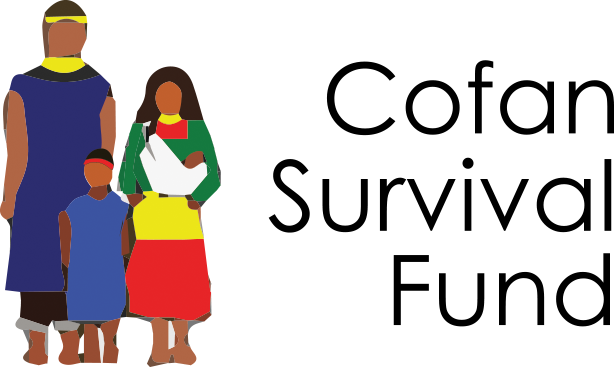
2013 has been a year of many challenges for Cofan Survival Fund, but we've faced them with determination, never "dándonos por vencidos," or giving up. Here are a few highlights of our accomplishments this past year:

Fundación Sobrevivencia Cofán was one of only 13 nonprofit organizations around the world to win this year’s MacArthur Award for Creative and Effective Institutions! The award recognizes exceptional grantees who have demonstrated creativity and impact, and invests in their long-term sustainability with one-time grants.

As a way to make the Charapa Turtle Project sustainable, FSC created a business plan that would make half of the year's turtles available to be purchased in local and international markets and used to repopulate other Amazon rivers.

September 2013 marked the 10th anniversary of the Cofan Ranger Program. In a world where the destruction of our remaining wilderness areas approaches 2% per year, and where even the Ecuadorian National Park System has lost over 15% of its pristine areas during the past ten years, our rangers have accomplished the incredible feat of ZERO DEFORESTATION in over 1,000,000 acres of forest during the same time period. That is an area the size of the entire state of Delaware.
We understand that only reading about a vast, biodiverse forest is not enough, so please enjoy this video about Cofan territory, which will take you on a visual journey through the windswept highlands, misty cloud forests and tropical jungles, not to mention the endangered plants and animals found within, that Cofan Survival Fund has played a major role in protecting for almost 15 years.
Today, we are facing even greater threats than ever before. Government policies promote large-scale infrastructure projects, including huge pit-mining operations, mega hydroelectric projects, and intense exploration and exploitation of petroleum reserves. Colonists continue to view our territories as empty lands not being “used,”and which should be opened to them to exploit and destroy. And while understanding and support for the intact forest as a source of environmental services is on the increase within Ecuador, short-term economic interests continue to exert pressure with little concern for future impacts.
We know how many organizations are asking for your donations right now, and each and every one tells you how important your donation is to them. We are a small organization that puts our programs first when it comes to funding. Without outside support, we will not be able to continue our work, and Cofan forests will begin to disappear along with the other forests of Ecuador and Amazonía as a whole…
You can be part of the solution. Don’t think of yourself as too far away to be concerned. Together, we can ensure that at least this million acres of forest continues to provide carbon sequestration, watershed protection, biodiversity protection and erosion control for all of our futures.









